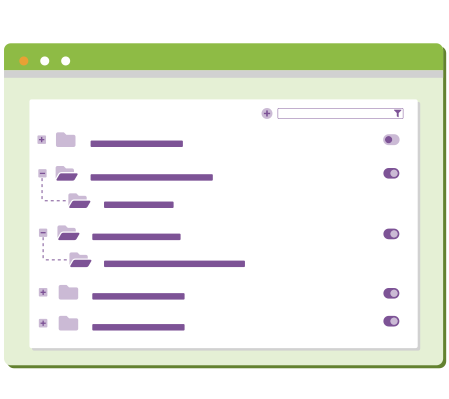
Question Sets offer a place for administrators to add and store questions that can be used throughout multiple forms. Offering a parent-child structure, there can be questions, sub-questions, sub-sub questions, and so on.
With immediate access to previously used questions, administrators can strategically implement such question sets or even go in and update them for future use. This saves an immense amount of time when creating evaluations and provides a record of evaluation questions.
Customizable to fit your needs, a complete selection of evaluation form types are available for implementation. There are many different types of advanced evaluation forms that may be customized to best fit a specific program, including:

eValuate+ offers the ability to include rubrics in evaluation forms. Rubrics break qualitative measures, which can be subjective, into clearly delineated criteria and associated scores to make grading more efficient, transparent, and consistent. They also give more specific feedback, helping students (or other evaluatees) understand why they received a certain score. This higher quality feedback allows for more growth, as evaluatees know with more certainty their strengths and places for improvement. Learn more about eValuate+’s rubrics here.
eValuate+ also can be customized to include or require comments after every question type on the form, encouraging detailed feedback rather than just a score.
A complete and easy to use evaluation management system, the forms listing organizes and tracks upcoming, live, drafted, and archived evaluation forms. The forms listing provides reliable and effective tools for evaluation filtration, access, and editing.